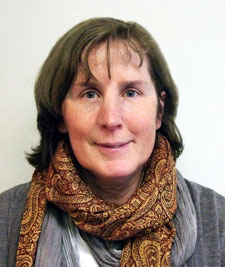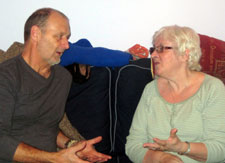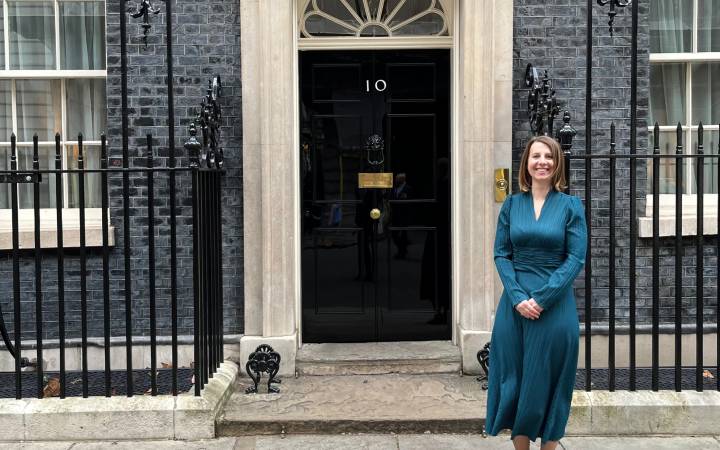Study investigates satisfaction with support offered to stroke survivors' carers
Posted Friday 15 March 2013
 Every year an estimated 150,000 people have a stroke, with those from ethnic minority backgrounds more likely to be affected. A majority rely on family members for long-term care but very little is known about these carers' needs or if they feel the social care services designed to support them, work well. Now, researchers from Kingston University and St George's, University of London, are embarking on a study to explore the differences in satisfaction levels amongst older carers of stroke survivors from different ethnic groups.
Every year an estimated 150,000 people have a stroke, with those from ethnic minority backgrounds more likely to be affected. A majority rely on family members for long-term care but very little is known about these carers' needs or if they feel the social care services designed to support them, work well. Now, researchers from Kingston University and St George's, University of London, are embarking on a study to explore the differences in satisfaction levels amongst older carers of stroke survivors from different ethnic groups.
"Satisfaction is an important element of measuring service quality and there is evidence that carers from ethnic minorities may feel less happy with the support available than those of white British origin," Dr Nan Greenwood, lead researcher from the Faculty of Health, Social Care and Education, run by Kingston and St George's, explained. "With Black and Asian carers a significant and growing group, it's really important to understand why this is - to ensure equity of access and to make sure needs are met, regardless of ethnicity."
People who care for stroke survivors save the British economy around £2.5 billion every year, but they can sometimes pay a high personal, emotional and physical price. Meeting their needs is important in itself, but having healthy carers is also important for stroke survivors, Dr Greenwood said. Evidence showed patients fared better if their family was healthy, not suffering from stress and involved in their care, she added.
The study, funded by the National Institute of Health Research's School for Social Care Research, will focus on Black African, Black Caribbean, Asian Indian, Asian Pakistani and white British carers aged 50 and older. "We're focusing on older carers as sometimes they, in particular, can find it hard to give frank feedback because they struggle to see themselves as consumers of social care," Dr Greenwood said. "Often they feel they should say that everything is fine, even if it isn't."
 Participants will be recruited from voluntary sector organisations such as Carers Support Merton, Wandsworth Carers and the stroke unit at St George's Hospital in Tooting. They will take part in focus groups and individual interviews with researchers to discuss their experiences of social care and explore what, for them, constitutes good and poor service. "I think we will find a lot of themes that are common across all ethnic groups," Dr Greenwood said. "But we also want to explore why some carers from ethnic minorities can tend to be less satisfied with social care - is it because services don't meet their expectations, or possibly because their understanding of what is meant by satisfaction is different?"
Participants will be recruited from voluntary sector organisations such as Carers Support Merton, Wandsworth Carers and the stroke unit at St George's Hospital in Tooting. They will take part in focus groups and individual interviews with researchers to discuss their experiences of social care and explore what, for them, constitutes good and poor service. "I think we will find a lot of themes that are common across all ethnic groups," Dr Greenwood said. "But we also want to explore why some carers from ethnic minorities can tend to be less satisfied with social care - is it because services don't meet their expectations, or possibly because their understanding of what is meant by satisfaction is different?"
Previous research had revealed that people from ethnic minorities were under-represented in their take-up of mainstream services, sometimes because they didn't think they were appropriate for them, Dr Greenwood said. She hopes the research, which will be completed next year, will offer an insight into why some carers are less satisfied with the support available than others and will also provide useful information to help social care organisations plan future services. "One of the debates in social care is whether services should be specifically designed to suit the needs of one particular group, or whether mainstream services should be suitable for everyone," Dr Greenwood said. "Developing tailored services could make one group feel singled out, or different. However, it would mean programmes could be shaped to meet the specific language, cultural or religious needs of that group."
- Find out more about the Long Term Conditions Research Group at Kingston University and St George's, University of London.
Contact us
General enquiries:
Journalists only:
- Communications team
Tel: +44 (0)20 8417 3034
Email us



